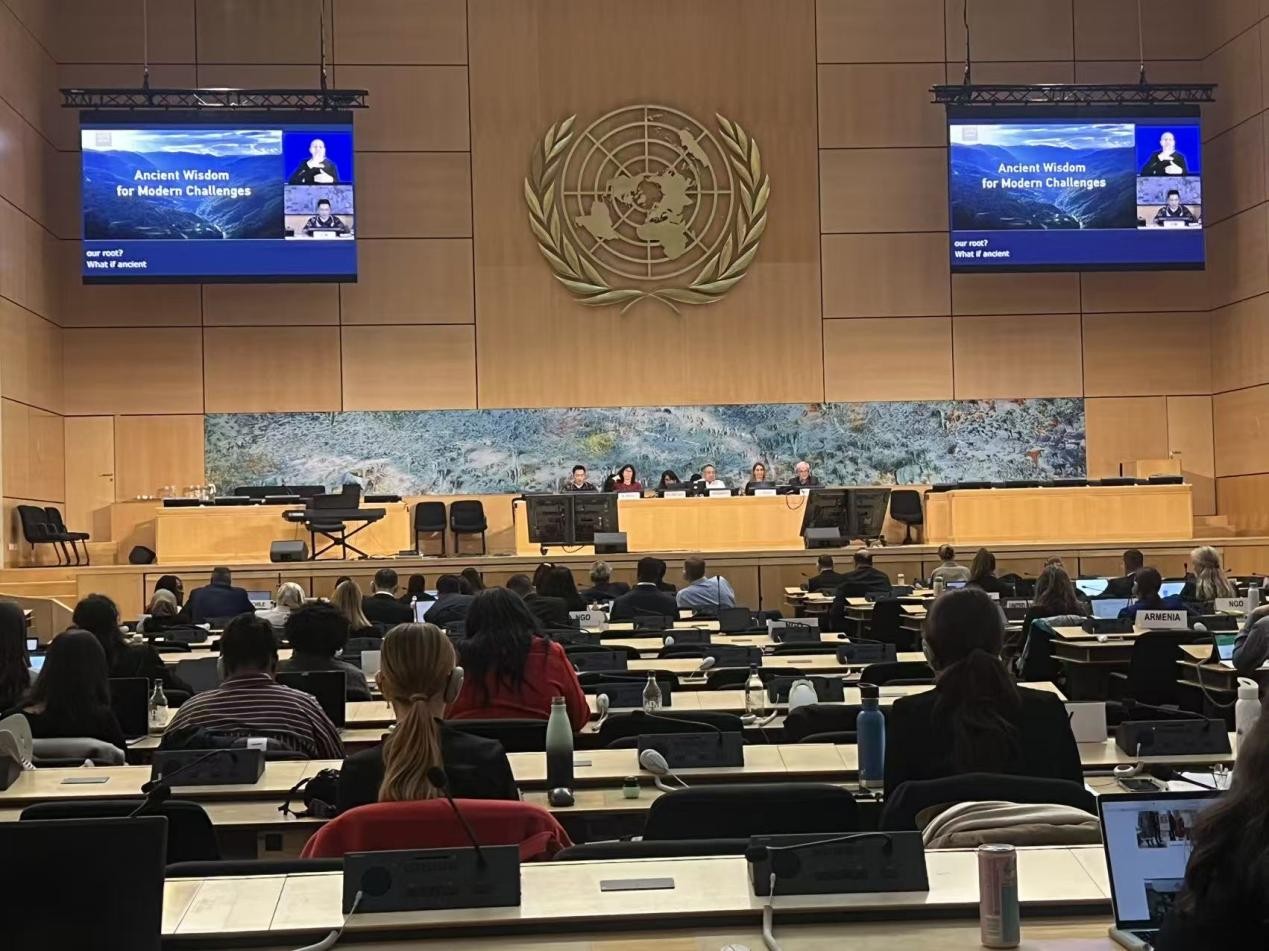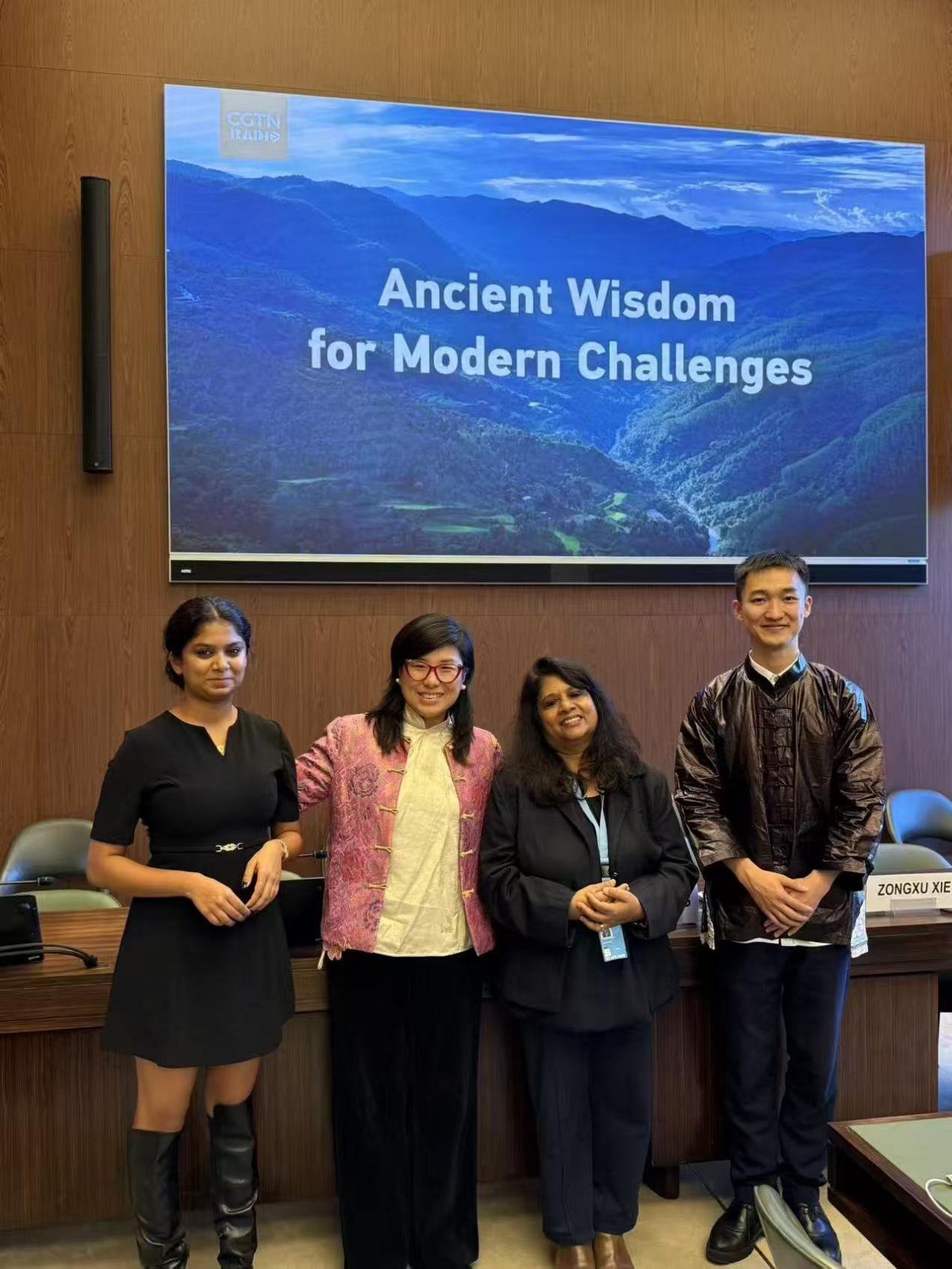Peking University, November 24, 2025: The Climate Future Global Innovation Lab (C Force Lab) of the Institute of Carbon Neutrality at Peking University launched the global dialogue on "Ancient Wisdom for Modern Challenges" at the United Nations Social Forum in Geneva. This initiative calls upon nations worldwide to draw inspiration from their own profound civilizational heritage to explore resilient and diverse pathways for addressing climate change.
Amidst multiple challenges in global climate governance—including technological breakthroughs, policy coordination, and funding implementation—innovative, systemic and long-term thinking is urgently needed. Wang Binbin, Chair of C Force Lab and Associate Research Professor at Institute of Carbon Neutrality, explained that the dialogue's core hypothesis posits that the Chinese philosophy of "Harmony Between Humanity and Nature," alongside traditional wisdom from various world cultures, can provide crucial cultural foundations and mental resources for civilizational transformation.
 Dr. Xie Zongxu, Youth Fellow of C Force Lab and UN Indigenous Fellow, introduced the dialogue at the UN Social Forum and launched the "Global Village T" initiative.
Dr. Xie Zongxu, Youth Fellow of C Force Lab and UN Indigenous Fellow, introduced the dialogue at the UN Social Forum and launched the "Global Village T" initiative.
Methodologically, the global dialogue represents an "experimental action research on civilizational symbiosis and mutual learning," exploring the humanistic dimensions of carbon neutrality and the role of cultural resilience in climate action. It constitutes a cutting-edge inquiry into the deeper civilizational foundations of global climate governance.
Prof. Wang stated, “The deep meaning of carbon neutrality extends beyond energy substitution; it is a recalibration of the relationship between human and the ecosystem on this planet. The ultimate goal of carbon neutrality is to construct a civilizational paradigm where humanity and nature coexist in harmony.”

Prof. Wang Binbin and Xie Zongxu with representatives from India and Sri Lanka.
Moving forward, the project will engage in sustained dialogue with global thinkers and practitioners to systematically examine and mutually unearth the modern value of ancient wisdom. Through cross-media, cross-context knowledge transformation pathways, it aims to empirically verify the effectiveness of ancient wisdom in addressing contemporary complex challenges within a framework of genuine civilizational mutual learning.
Prof. Wang emphasized, “A key next step involves identifying more cultural sites that embody the concept of 'Harmony Between Humanity and Nature,' thereby anchoring the global dialogue within a specific geographical and cultural context to achieve deep mutual validation between theoretical exploration and local practice.”
Edited by: Chen Shizhuo
Source: Institute of Carbon Neutrality, Peking University

